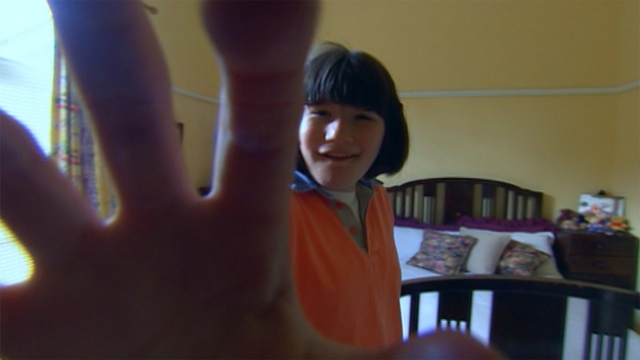Walk in our Shoes
Should a woman with the intellectual age of a two-year-old have the right to bear a child? Should her parents be able to consent to a hysterectomy on her behalf? A sensitive look at an emotive issue.
 Should disabled people ever be sterilized? For most of the twentieth century, disabled people were routinely sterilised. The movement against compulsory sterilisation has been so effective that some parents now feel that their disabled children are being denied important medical aid.
This documentary shares opinions from people at the heart of the debate; disabled people, their parents, and health care professionals.
Annette Kalkman suffers from cerebral palsy and was sterilised without her knowledge. She expresses sadness at having her choice taken away and anger about the fact that she will never experience periods or get to decide about having children.
Mother Sue Ferris worries about what will happen to her daughter Laura when she is gone. The combination of Laura's tendency towards self-injury, the distress caused to her by her periods and the dangers posed by pregnancy mean that Sue feels let down by healthcare professionals.
Walk in Our Shoes examines the right to self-determination and the difficulties of maintaining fragile happiness while engaging with such difficult issues.
Should disabled people ever be sterilized? For most of the twentieth century, disabled people were routinely sterilised. The movement against compulsory sterilisation has been so effective that some parents now feel that their disabled children are being denied important medical aid.
This documentary shares opinions from people at the heart of the debate; disabled people, their parents, and health care professionals.
Annette Kalkman suffers from cerebral palsy and was sterilised without her knowledge. She expresses sadness at having her choice taken away and anger about the fact that she will never experience periods or get to decide about having children.
Mother Sue Ferris worries about what will happen to her daughter Laura when she is gone. The combination of Laura's tendency towards self-injury, the distress caused to her by her periods and the dangers posed by pregnancy mean that Sue feels let down by healthcare professionals.
Walk in Our Shoes examines the right to self-determination and the difficulties of maintaining fragile happiness while engaging with such difficult issues.
On the day of her eighteenth birthday, disabled student Kristine Nattras was told to prepare herself for a visit to the hospital. She remembers feeling very scared and not knowing what was happening. It was only when the operation was over that she learned she had been sterilised. "I think it was deemed that if she did have children, she would be unable to look after them," states friend Leanne Dowse. However, for Kristine, the effects of the operation have been heartbreaking. "I get a little bit upset when I see people nursing children because I wish they were mine," she confides.
"To remove a healthy organ from someone, to remove, in essence, a function which is part of being a woman can be seen as a fairly serious breach of human rights," states Anita Smith, President of the Tasmanian Ethics Board. Mother Sue Ferris sees the issue in a different light. "I really believe that the parents just have no say," complains mother Sue Ferris. "We have to look after the child but if we feel that something like sterilisation would make the child's life better, we're just ignored."
Sue's 14-year-old Laura is profoundly disabled. "Laura is functioning at about the 14-month level. She can't toilet train herself ... If Laura's menstruating, there's a total lack of dignity." When Laura was 12, Sue reluctantly decided that it would be in her best interest to have a hysterectomy. "As a parent, it's the last thing in the world that you would choose for your child ... It's accepting that your child is so disabled that they're never going to be able to cope on their own."
However, to her surprise, her application to have Laura sterilised was rejected. "I recommended against a hysterectomy for Laura because this was being proposed pretty much as a first option," explains Dr Sonia Grover. Instead, she suggested controlling Laura's periods with medication.
Debbi Rushford can identify with the frustrations felt by the Ferris family. She was shocked to discover that her mentally disabled son Matthew and his disabled girlfriend were going to have a baby. The thought that Matthew could father more babies fills her with concern for her these children's future.
These concerns are clearly shared by social services. Although it is now much harder for disabled people to be sterilised, there is still an overwhelming belief that they do not make suitable parents. Children of parents with an intellectual disability are twice as likely to be taken into care as other children. "It makes you wonder if there isn't some underlying - if not recognised - motive. Here are children who are potentially available for adoption," ponders Professor Gwynnyth Llewellyn.
So is the sterilisation of disabled people an abuse of their human rights or is it, as their parents claim, in their own best interest?
FULL SYNOPSIS
Produced by ABC Australia
